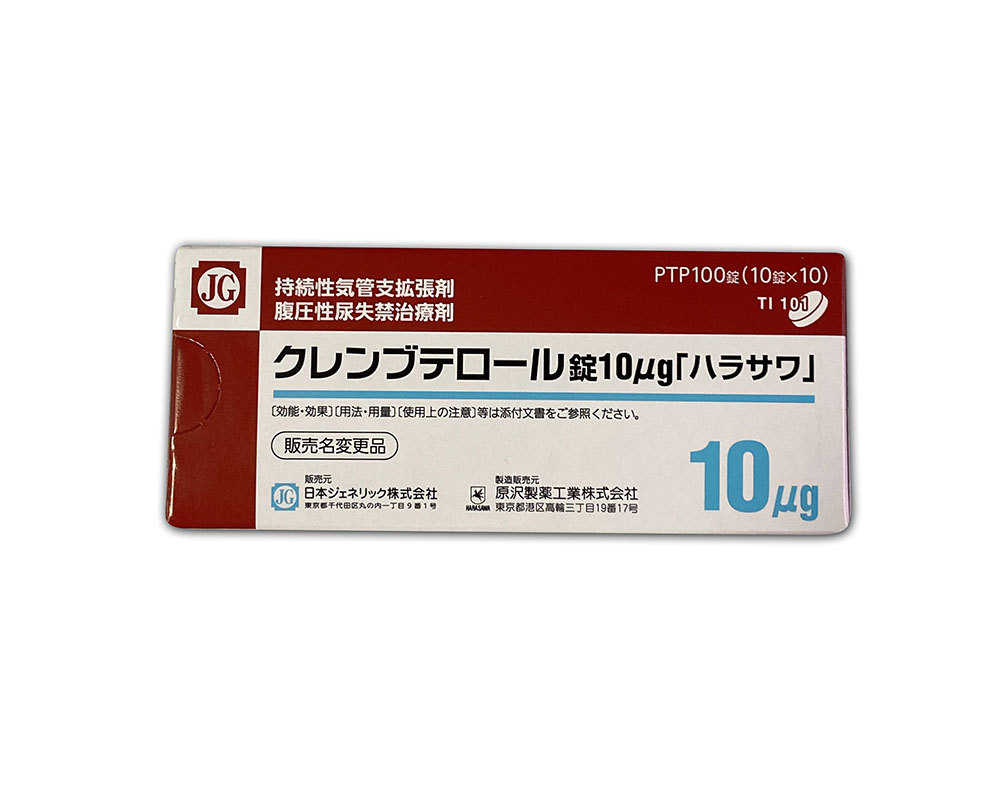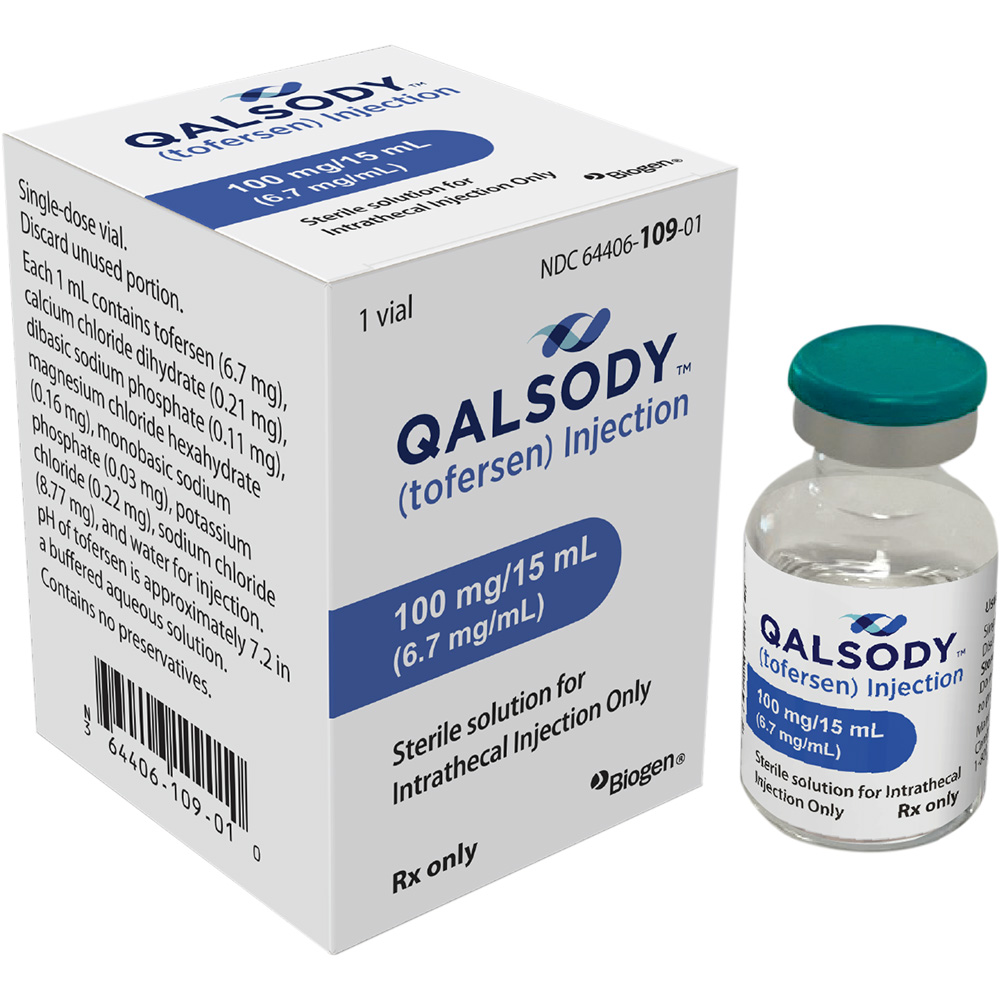Clenbuterol () vs Qalsody (tofersen)
Clenbuterol () vs Qalsody (tofersen)
Clenbuterol is a bronchodilator primarily used for treating asthma and other breathing disorders, and it has been used off-label for weight loss and performance enhancement, though such uses are not approved by most medical regulatory agencies due to associated risks. Qalsody (tofersen), on the other hand, is an antisense oligonucleotide designed to target and reduce the production of the SOD1 protein, which is implicated in the genetic form of amyotrophic lateral sclerosis (ALS), and is used for treating patients with SOD1-ALS. When deciding between these medications, it is crucial to consider the intended use: Clenbuterol is inappropriate for neurological conditions, while Qalsody is specifically tailored for a subset of ALS patients and would not be suitable for respiratory conditions or weight management.
Difference between Clenbuterol and Qalsody
| Metric | Clenbuterol () | Qalsody (tofersen) |
|---|---|---|
| Generic name | Clenbuterol | Tofersen |
| Indications | Off-label for weight loss, asthma (outside of the U.S.) | Treatment of amyotrophic lateral sclerosis (ALS) with SOD1 mutation |
| Mechanism of action | β2 agonist | Antisense oligonucleotide |
| Brand names | Not available in the U.S. | Qalsody |
| Administrative route | Oral, inhalation (not in U.S.) | Intrathecal injection |
| Side effects | Tremors, insomnia, sweating, increased blood pressure, nausea | Headache, back pain, fall, arthralgia, and diarrhea |
| Contraindications | Cardiovascular diseases, hyperthyroidism | None known specifically, use with caution in patients with renal impairment |
| Drug class | Beta2-adrenergic agonist | Antisense oligonucleotide |
| Manufacturer | Varies by country | Biogen |
Efficacy
Clenbuterol and Amyotrophic Lateral Sclerosis (ALS)
Clenbuterol is a sympathomimetic amine traditionally used for its bronchodilator properties in the treatment of asthma. However, it has also been studied for its potential role in neurodegenerative diseases, including Amyotrophic Lateral Sclerosis (ALS). ALS is a progressive neurodegenerative disease that affects nerve cells in the brain and the spinal cord, leading to loss of muscle control. While Clenbuterol is not approved for the treatment of ALS, some research suggests that its potential neuroprotective properties and ability to promote muscle growth might offer benefits in managing ALS symptoms. However, the efficacy of Clenbuterol in treating ALS remains uncertain, as there is limited clinical data to support its use for this indication.
Studies on Clenbuterol in ALS have been limited and have shown mixed results. Preclinical studies have indicated that Clenbuterol may have a neuroprotective effect and could potentially slow the progression of motor neuron degeneration. However, these findings have not been consistently replicated in human clinical trials. The lack of robust clinical evidence means that Clenbuterol's efficacy in ALS treatment is still an area of ongoing investigation, and it is not currently a standard treatment for ALS.
Qalsody (Tofersen) and Amyotrophic Lateral Sclerosis (ALS)
Qalsody, with the active ingredient tofersen, is an investigational antisense oligonucleotide designed to reduce the production of superoxide dismutase 1 (SOD1), a protein known to be associated with a genetic form of ALS. ALS caused by mutations in the SOD1 gene is referred to as SOD1-ALS, which is a subtype of familial ALS. Tofersen aims to target the underlying genetic cause of SOD1-ALS by binding to the SOD1 mRNA, thereby reducing the production of the toxic SOD1 protein that is believed to contribute to the neurodegeneration observed in ALS.
The efficacy of Qalsody (tofersen) in treating SOD1-ALS has been evaluated in clinical trials. Early-phase clinical studies have shown that tofersen can reduce SOD1 protein levels in the cerebrospinal fluid of patients with SOD1-ALS, which suggests a potential to modify the disease course. However, the impact of tofersen on clinical outcomes such as survival and functional decline requires further investigation in larger, more definitive clinical trials. As of the knowledge cutoff date, Qalsody (tofersen) has not received regulatory approval, and its use is limited to clinical trial settings. The ongoing research is crucial to determine the long-term efficacy and safety of tofersen for patients with SOD1-ALS.
Regulatory Agency Approvals
Clenbuterol
-
Pharmaceuticals and Medical Devices Agency (PMDA), Japan

Qalsody
-
Food and Drug Administration (FDA), USA

Access Clenbuterol or Qalsody today
If Clenbuterol or Qalsody are not approved or available in your country (e.g. due to supply issues), you can access them via Everyone.org.
How it works

Make an enquiry
Choose the medicine you want to buy, answer a couple of questions, and upload your prescription to speed things up. We’ll get back to you within 24 hours.


Make an enquiry
Choose the medicine you want to buy, answer a couple of questions, and upload your prescription to speed things up. We’ll get back to you within 24 hours.


Breeze through the paperwork
We'll guide you through the required documents for importing unapproved medicine, ensuring you have all the necessary information.


Get a personalized quote
We’ll prepare a quote for you, including medicine costs and any shipping, administrative, or import fees that may apply.


Receive your medicine
Accept the quote and we’ll handle the rest - sourcing and safely delivering your medicine.

Some text on this page has been automatically generated. Speak to your physician before you start a new treatment or medication.
Let's talk
If you have any questions, call us or send us a message through WhatsApp or email:
Contact us




